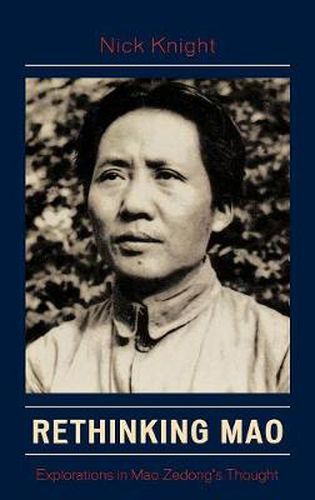Readings Newsletter
Become a Readings Member to make your shopping experience even easier.
Sign in or sign up for free!
You’re not far away from qualifying for FREE standard shipping within Australia
You’ve qualified for FREE standard shipping within Australia
The cart is loading…






Rethinking Mao offers an innovative perspective on the thought of Mao Zedong, the major architect of the Chinese Revolution and leader of the People’s Republic of China until his death in 1976. Utilizing a number of recently discovered documents written by Mao, Nick Knight rethinks Mao by subjecting a number of controversial themes to fresh scrutiny. This book provides a sophisticated analysis of Mao’s views on the role of the peasants and working class in the Chinese revolution, his theoretical attempt to make Marxism appropriate to Chinese conditions, and his understanding of the Chinese road to socialism. Knight includes a discussion of the theoretical difficulties in interpreting Mao’s thought. Rethinking Mao represents a challenge to many of the conventional accounts of Mao and his thoughts. This book will appeal to scholars and students of Chinese history and politics, as well as the history of Marxism in China.
$9.00 standard shipping within Australia
FREE standard shipping within Australia for orders over $100.00
Express & International shipping calculated at checkout
Rethinking Mao offers an innovative perspective on the thought of Mao Zedong, the major architect of the Chinese Revolution and leader of the People’s Republic of China until his death in 1976. Utilizing a number of recently discovered documents written by Mao, Nick Knight rethinks Mao by subjecting a number of controversial themes to fresh scrutiny. This book provides a sophisticated analysis of Mao’s views on the role of the peasants and working class in the Chinese revolution, his theoretical attempt to make Marxism appropriate to Chinese conditions, and his understanding of the Chinese road to socialism. Knight includes a discussion of the theoretical difficulties in interpreting Mao’s thought. Rethinking Mao represents a challenge to many of the conventional accounts of Mao and his thoughts. This book will appeal to scholars and students of Chinese history and politics, as well as the history of Marxism in China.